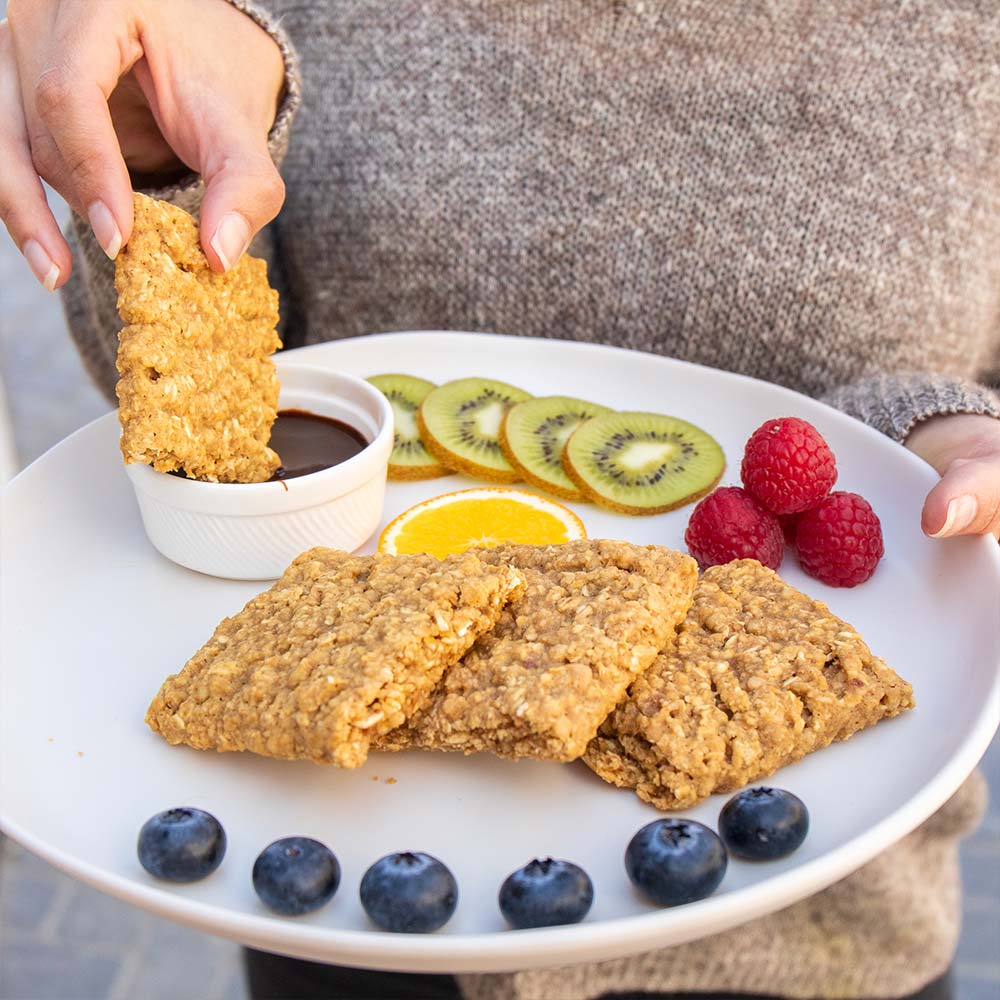Maintaining a set diet is not easy at all, it becomes even more complicated when one has a busy week with lots of meetings, running errands, and occasions to attend. These are the times when you may opt for fast foods or in extreme cases miss meals altogether which is not good news especially if you have a plan for achieving some specific targets such as a meal plan for weight loss or dietary plans among others. However, there are necessary measures that one can take to ensure that he or she stays on course despite working all the weeks of the month.
This post is all about offering you practical advice for achieving your meal plans, maintaining adherence to your weight loss plans, and reducing the time, energy, and commitment needed to effectively manage portion sizes.
1. Plan to Eliminate Last-Minute Decisions
One of the first ways that one can make sure that he or she is on the right track when it comes to following the meal plan is to set a schedule. Most individuals lose track as soon as they do not know what they are going to eat and therefore, take something they do not want or take nothing at all. Ideally, when your week is busy and filled with obligations you should not spend your time thinking and calculating what to eat or not.
How to Plan:
1. Create a Weekly Meal Plan: Ideally, it is best to spend time planning at the weekend or the beginning of the week. If you are on a diet, you need to choose the recipes that are appropriate for your meal plan and your caloric intake. Schedule every meal for the week, including breakfast, lunch, dinner, and anything in between.
2. Prep Ingredients in Advance: So once you have your plan in place, try to do as much as you can in advance to eliminate surprises. Prepare ingredients for meals by chopping vegetables into bite sizes, cooking grains in advance, and portioning snacks in separate bowls. This will help you avoid coming up with convenient foods during the week since your time is well spent in cooking your meals.
2. Prioritize Easy, Quick Recipes
When one has busy weeks ahead, it means that tasty recipes should be healthy and easy to prepare. It is not necessary to prepare elaborate meals at home to get a yummy and nutritious meal. This way, you will always have wholesome meals that are easy to prepare especially when time is scarce due to other activities.
Quick and Healthy Meal Ideas:
1. Sheet Pan Meals: As previously pointed out, one-pan dishes are quite convenient and do not take a lot of time to prepare. Just put your protein preference, vegetables, and spices on a baking sheet, and roast them in the same tray. It allows for flexibility in swapping around the veggies and proteins to make it different for the week.
2. Salad Jars: Proportion salads in jars or containers in proper amounts for serving sizes. The lower compartment should be your dressing, then a middle layer of grains or protein, and the uppermost level as your greens. And when you are hungry, shake the jar and, you get a fresh, healthy salad that’s ready to eat!
3. Smoothies: Smoothies are also beneficial if you run out of time in the morning as they only take a few minutes to prepare. Have the frozen fruit, greens, and scoops of pre-meal protein powder readily available in the freezer so you can mix them easily. Include sources of healthy fats such as avocado or almond butter for that added satisfaction.
4. Stir-Fries: Stir fries are another light, fast food that also fills your stomach with proper nutrients. They can be prepared in under 20 minutes and are comprised of lean protein, a copious amount of vegetables, and a thin sauce. This can be served over brown rice/quinoa to get a balanced meal.
Choosing these simple meals will take less time to prepare and will not lead to overeating or consuming too many calories during a busy week.
3. Consistency can be achieved by using portion control
When it comes to portion control, meal plans for weight loss must be observed even among working individuals. The need to grab something quick or immediately assuage hunger means that portion sizes are controlled to prevent overeating and thus go beyond one’s recommended caloric intake.
Simple Ways to Manage Portion Control:
1. Use Smaller Plates: As for portions, one of the best strategies that may help is the use of small plates when serving. This optical illusion lets one feel full with a lesser amount of food consumed.
2. Pre-Portion Snacks: If you are a chips or nuts lover, it is better to portion these into smaller, individual containers rather than taking them directly from the bag. This saves one from overeating and also helps one to stick to their portion size control and calorie control goals.
3. Follow a Plate Method: Maintain portion control by splitting your plate into designated sections for different food groups. The guideline of the serving plate for a normal meal is that half of the plate should comprise vegetables, one quarter should comprise protein, and the other quarter can be whole grains or starchy vegetables. This ensures your meals are nutritionally complementary and helps in avoiding instances where you take large amounts of calories from your preferred food group.
4. Portion Out Meals in Advance: When preparing meals for the week, divide the meals into the daily serving sizes and put them into separate containers. This makes it easier to grab and go without having the notion of serving yourself more than required.
You will be able to effectively manage your portion sizes from your weight loss and nutrition plan even when everything seems off.
4. Don’t Skip Meals
Whenever students manage their time and pack the entire day with activities, they could be tempted to leave out meals. However, this can make one eat too much during the other parts of the day or take high-calorie, unhealthy snacks. Skipping meals also affects your energy levels in that you have little energy to use to go through the day.
How to Avoid Skipping Meals:
1. Eat Balanced Breakfasts: Drinking large meals during breakfast such as eggs, whole grains, vegetables and protein foods can help you to reduce hunger pangs for several hours. If one has the time constraint, they can have something as easy as overnight oats, or a Greek yogurt parfait that comes with fruits and nuts.
2. Pack Your Lunch: It is advised to carry your lunch with you if you are working somewhere else. When you carry along with your packed breakfast or some other home-cooked meal, you are not likely to take junk foods or even go for restaurant meals. For instance, preparing salads, grain bowls, or sandwiches ahead of time means that you will not be enticed to indulge in unhealthy foods.
3. Have Snacks on Hand: Therefore, ensure that you take healthy snacks in the correct measurements each time you wish to eat. In this way, whenever you feel like having a snack between meals, there will be something healthy to munch on and soothe your hunger.
It will also help you avoid getting very hungry to the point of binging or going off your diet plan entirely.
5. Look for Help from a Meal Delivery Service
Occasionally, you may find yourself with a very busy schedule to warrant time for preparing healthy meals. In such instances, ordering a meal delivery service can be quite helpful. He added that there are companies such as Energy Meal Plans which provide portion-controlled meals focused on weight loss and general healthy eating.
Benefits of Meal Delivery Services:
1. Convenience: Meals in a box are convenient for people who do not want to spend time cooking and preparing meals especially when they have many things to do during the week.
2. Portion and Calorie Control: Companies like Energy Meal Plans provide services where healthy meals are portioned and measured by calories depending on the intended weight loss or nutrition plan. You do not need to concern yourself with overeating and having no way of estimating quantity.
3. Consistency: This is particularly beneficial because when you have your meals pre-packed, you will stick to your nutrition plan as opposed to giving in to the lure of Pizza Hut or McDonald's.
Meal delivery services can be useful when you are busy throughout the day and have no time to prepare your healthy meals and ensure that you don’t consume too many calories.
6. Drink Water to Aid Your Scheme
The importance of drinking sufficient water cannot be underestimated especially when following a diet plan or when on a diet to correct energy balance. This is because one may confuse hunger for thirst and thus end up eating even when their body is requesting water.
Hydration Tips:
1. Carry a Water Bottle: You should also try to always have a water bottle with you so that you can remind yourself to take a sip now and then. Drink at least 8 glasses of water a day, and more if you engage in physical activities.
2. Add Flavor: For those who cannot drink plain water, try adding a twist by adding fresh fruits, cucumber, or mint to the water. This makes a habit of drinking water enjoyable and helps one hydrate.
3. Drink Before Meals: This is a very mature approach to managing portions since taking a glass of water before taking anything reduces the quantity of food eaten.
Hydration will complement your nutrition plan through energy, digestion, and avoidance of unwanted snacks.
7. Be Flexible and Forgive Yourself
Not all is always rosy in life and sometimes you may find yourself straying from your meal plan. It is important not to condemn yourself too much if this happens. However, it is much wiser to start afresh as soon as possible.
How to Stay Flexible:
1. Allow Some Flexibility: Always ensure that you incorporate a form of flexibility in your meal planning. For example, if you anticipated that the next day would be hectic, you’d have to shift the meal to another day or cook a simpler meal.
2. Don’t Dwell on Slip-Ups: The key is not to give up an entire week’s worth of eating well if you overindulged on the previous day or skipped a meal. Eat a healthy diet for your next meal to keep off the unhealthy track. The point is not the making of the perfect loaf; it is making progress toward improvement.
As a result, accepting the fact that going to the gym or avoiding certain products can be challenging and applying the concept of ‘nothing is perfect’ will allow you to stay focused on your goals and continue with your weight loss or nutrition plan.
Conclusion
Free and fast weeks do not necessarily mean the end of meal planning or losing weight goals. A great benefit of achieving your goals is that no matter how busy life becomes, you are always ready and you can easily stick to your plan as it’s presented. And if things get too busy, that is where meal delivery services such as Energy Meal Plans come in handy.
The idea is to keep calm and shifting, keeping on moving in the right direction by making the right choices daily. By employing these strategies, you will be able to overcome even the most challenging weeks, and not deviate from your healthy eating plan.






























